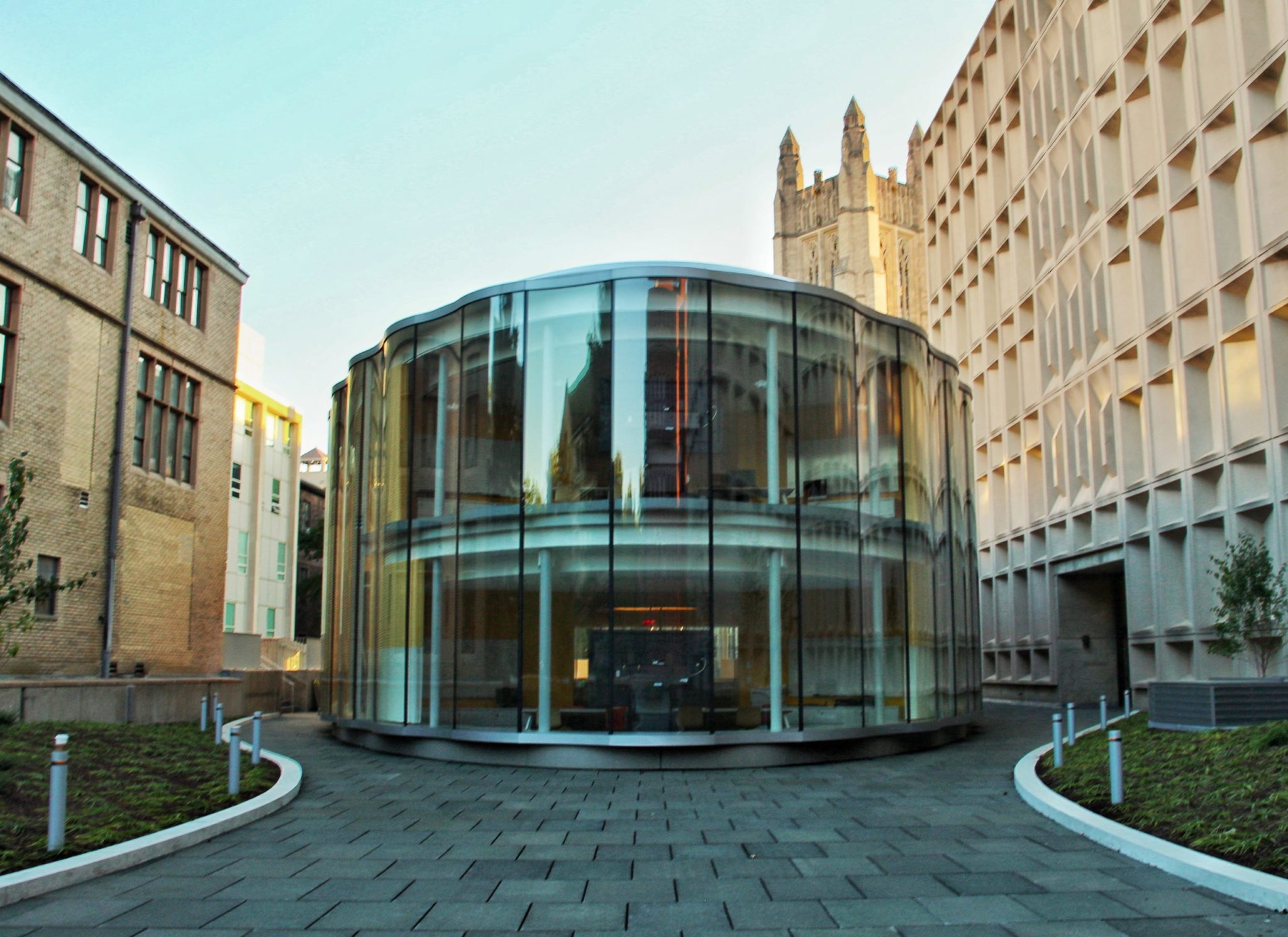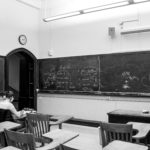STEM and Social Inclusion Series starts with speaker Anjelica Gonzalez
A New STEM speaker series aims to increase inclusion and visibility of marginalized voices within science.

Lily Dorstewitz, Contributing Photographer
On Tuesday, Anjelica Gonzalez gave a talk as the first speaker in the STEM and Social Inclusion Speaker Series. New Associate Dean for STEM Student Success Jacqueline Tanaka has been spearheading the new series of events for prospective STEM students from underrepresented backgrounds.
Gonzalez serves as an associate professor of biomedical engineering and is also the faculty director of the Tsai Center for Innovative Thinking at Yale. However, her presentation at the Zoom event, which was open to the public, did not simply focus on her current research. Instead, Gonzalez covered her life story and the battles she overcame, from growing up in Las Vegas as the daughter of a blackjack dealer to achieving a doctorate in engineering and earning a position as an associate professor at Yale. She hopes to now be the representation for STEM students from underrepresented groups that she never saw when first entering her scientific career.
“People can see that there are people like us, people who are minorities, people who are women, who are trying to do important science,” Gonzalez said during the Zoom presentation. “I don’t know how I got here, I really don’t. But what I want you to take away is that I took every opportunity that was offered to me, and I didn’t shrink away from that opportunity just because I was too scared or too shy.”
Gonzalez started her talk by covering her childhood in Las Vegas and being raised with her brother by a single mother. She often faced food insecurity, yet she persevered, graduated from high school and attended Utah State University. After graduating from college, she intended to work as an agricultural engineer, but she was convinced by people close to her to pursue a doctorate in computational biology at Baylor College of Medicine.
Gonzalez emphasized that she had never considered applying for a faculty position at Yale following her time at Baylor, and she did not realize it was a possibility for her. However, the previous chair of the Biomedical Engineering Department at Yale, Mark Saltzman, spoke to Gonzalez after a presentation that he gave and told her about applying for faculty positions at Yale.
“I think one of the things about me is that I did my best at whatever I was going to do,” Gonzalez said. “And every time someone said, you could try this if you wanted to, I just thought well, I could go to graduate school, but I already have my undergraduate degree to fall back on. I could fail at Yale, but you know what, that’s a pretty good place to fail at.”
According to Gonzalez, when people choose a career path in STEM, they are often asked to “leave themselves at the door” and separate their background from their research. She believes that this stifles innovation since people with varied past experiences and viewpoints can bring unique and effective solutions to the table. She explained that there is more to STEM than just science — it is also the people that make up the STEM workforce.
Gonzalez also spoke about recent research she conducted which led to an invention called PremieBreathe, a device to help premature babies breathe. She emphasized that her personal experiences and perspectives as a mother motivated her to create the new technology for people in under-resourced countries who do not always have the necessary expensive equipment to save prematurely born babies’ lives.
“The experiences that I’ve had in my life add to my science,” Gonzalez said. “When premature babies have respiratory failure, I came to understand the severity and the impact of fragility of babies when I became a mother. I think not having had that experience before, I rarely thought about it. So, that experience contributed to my desire and understanding of what it takes to develop technologies around infants.”
She hoped this knowledge would show prospective STEM students at Yale who felt either underrepresented or from a similar background that they can persevere through their obstacles and can look to her as a role model.
“I was honored to hear Dr. Gonzalez’s story,” Andonny Garcia ’22 wrote in an email to the News. “It was empowering to be reminded that our differences and backgrounds are not to be ashamed of but rather things to be proud of because they are our biggest assets. … I have also been made aware of how promoting inclusion in STEM can be done by introducing minorities like myself to relatable role models such as Dr. Gonzalez.”
The speaker series was an initiative started by Tanaka, the new associate director of STEM student success. Tanaka recently took the position at Yale after teaching at Temple University, and she hopes to create new ways for STEM students at Yale to access role models and resources for their pathway through academia.
When Tanaka first arrived at Yale, she was struck by the lack of diversity in STEM, particularly in the engineering faculty. This lack of diversity prompted her to organize a group of speakers to talk to Yale students about their experiences and paths to Yale.
“Anjelica is one of only two women [with primary appointments in biomedical engineering] here,” Tanaka said. “How many Black professors do you know? Dr. Paul Turner, who is the next person in the sequence is an African American … and my husband and there’s another person in physics, but I think that’s about all the Black professors in the sciences at Yale. That’s why I felt there was a real need for students to think and see people whose social identities were more closely related to them.”
The series is moderated by undergraduate and graduate students at Yale, according to Tanaka. There were some faculty who attended the talk, and they hoped to expand their knowledge on how to recruit a more diverse STEM workforce.
“Her story shows that no matter where you come from, with passion, determination, and the love and support from her family and her many mentors, she is able to succeed spectacularly,” Associate Dean for Science & Quantitative Reasoning Education Sandy Chang ’88 wrote in an email to the News.
The next speaker in the series is Paul Turner, the Rachel Carson professor of ecology and evolutionary biology, who will speak on March 9 at 5 p.m.
Anjali Mangla | anjali.mangla@yale.edu
Correction, Mar. 2: A previous version of this article included a quotation which incorrectly stated that Anjelica Gonzalez was one of only two women in the School of Engineering. Tanaka originally provided the News with incorrect information. The quote has been updated to reflect the more accurate fact that Gonzalez is one of two women with primary appointments in biomedical engineering at Yale, not within the entire School of Engineering. The story has been updated.








